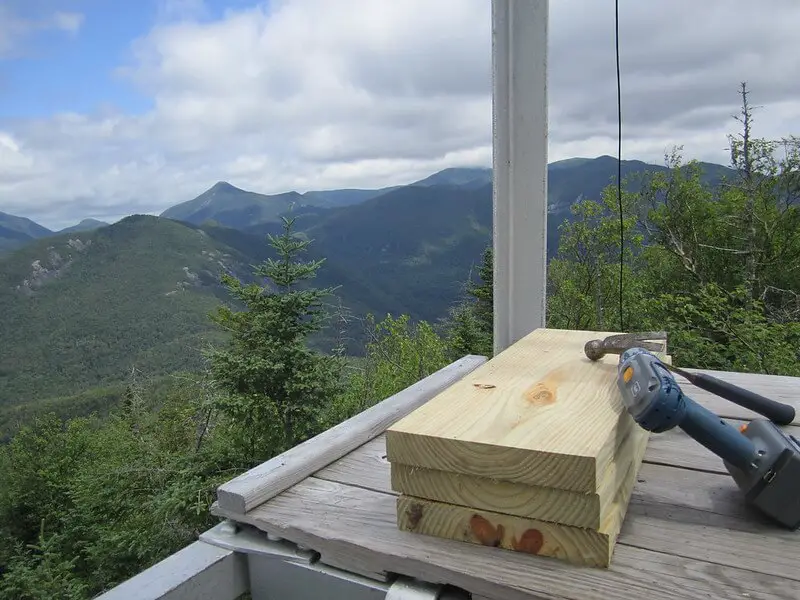How can you tell whether a certain type of wood is suitable for outdoor stairs? Well, it’s very simple. Here are some of the characteristics you should look for;
- Weather resistant: Your staircase will be exposed to different outdoor elements. Thus, ensure that the wood you choose can withstand those elements well.
- Rot-resistant: This is especially important if the staircase will be in contact with the ground.
- Good workability: The more workable the wood, the easier it will be for you to create your desired staircase design.
- Finishing: If you want to paint or stain your staircase, you’ll have to choose a wood type that finishes well.
Below are the five best woods for outdoor stairs that possess the qualities highlighted above.
Recommended Reading
Oiling outdoor wood for durability
Best Woods for Outdoor Stairs
1. Ipe
| Characteristics | Comment |
| Weather resistance | Very high |
| Rot resistance | Very high |
| Workability | Poor |
| Maintenance requirements | Minimal |
| Finishing | Slightly difficult |
If you want to build a staircase that will serve you for more than five decades, consider using Ipe. It is one of the strongest and most durable hardwoods out there.
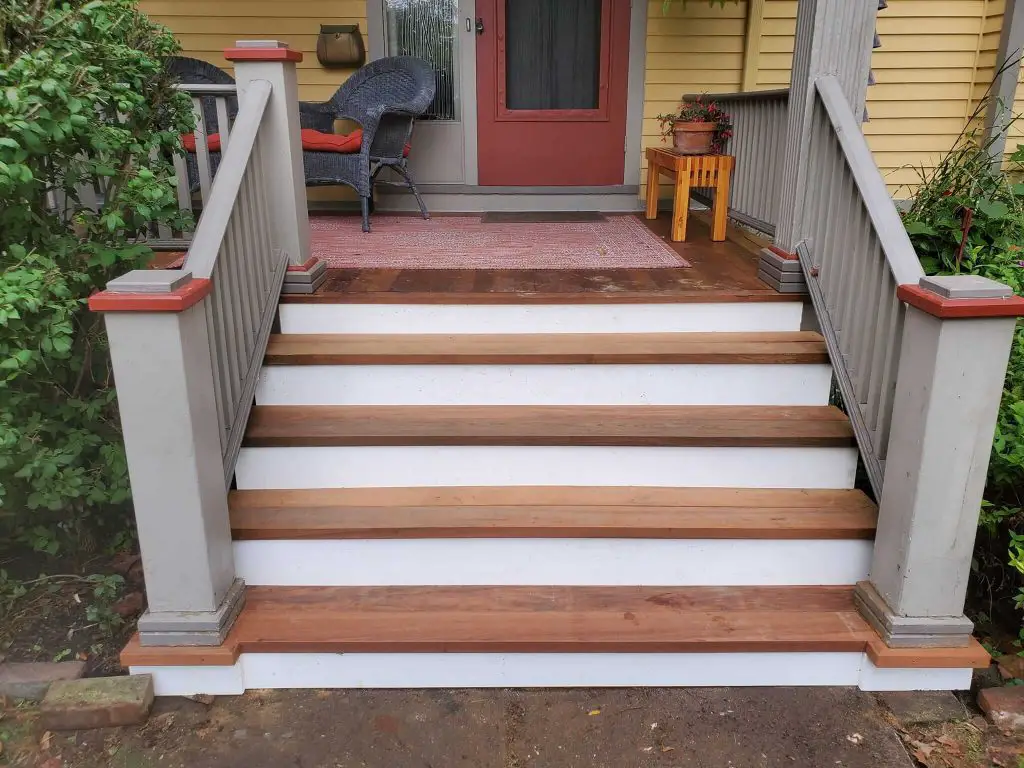
The wood can withstand outdoor elements well without showing signs of damage. For instance, it contains natural oils that make it water resistant. It is also less prone to cracking and splintering since it retains less heat than other woods. The wood is also naturally resistant to decay and insect attacks.
The natural oils in Ipe make it difficult to finish this wood properly. Ipe wood is also very dense, a feature that also makes it even more difficult to finish. This is not to say Ipe cannot be finished. A good penetrating oil can still get the job done.
Ipe has poor workability due to its hard nature; it has a blunting effect on cutters.
2. Black Locust
| Characteristics | Comment |
| Weather resistance | High |
| Rot resistance | Very high |
| Workability | Moderately difficult |
| Maintenance requirements | Minimal |
| Finishing | Finishes well |
Black locust is the perfect wood for outdoor projects due to their durability. When cared for properly, stairs made of this wood can last between 30-50 years.
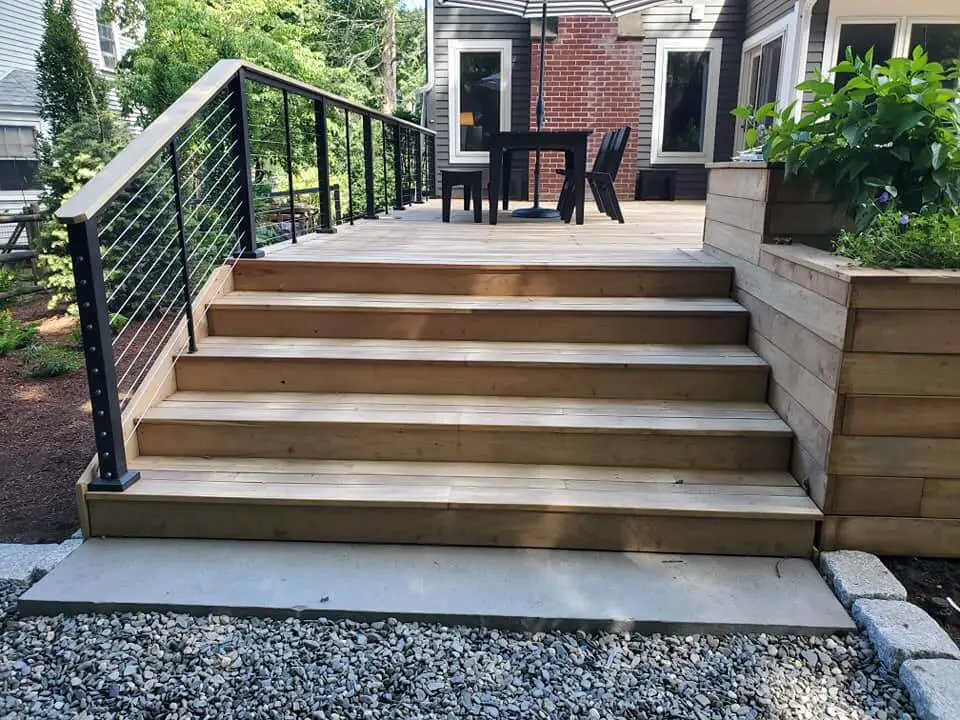
Black locust has minimal maintenance requirements since its naturally resistant to decay and outdoor weather. However, sealing the wood helps it retain its beautiful golden color. This wood finishes well, and you can easily stain it to your preferred color.
This wood has a much higher slip resistance than most tropical hardwoods. Unfortunately, its wood is slightly difficult to work with due to its hard nature.
3. Western Red Cedar
| Characteristics | Comment |
| Weather resistance | High |
| Rot resistance | High |
| Workability | Good |
| Maintenance requirements | Minimal |
| Finishing | Finishes nicely |
The western red cedar remains stable when exposed to outdoor elements. Its low density enables it to maintain its moisture content for long. Thus, it’s less prone to shrinkage when compared to other softwoods such as pine.
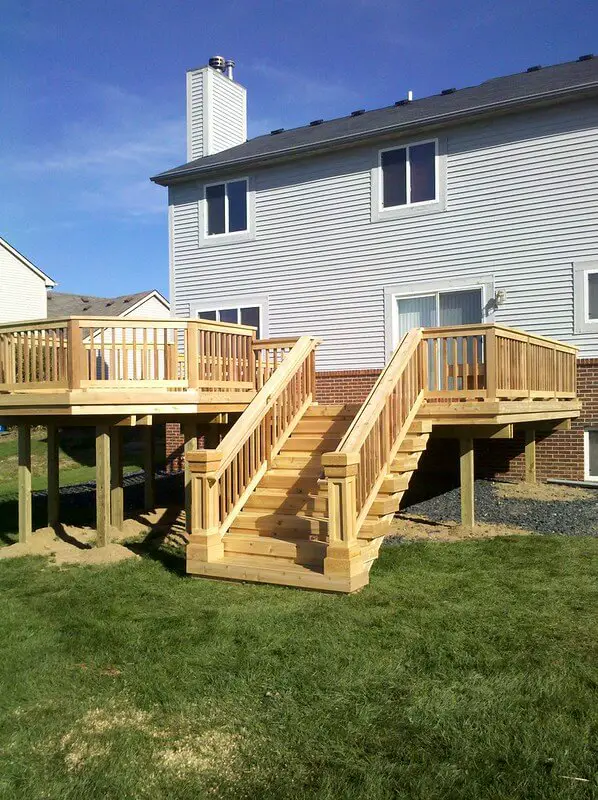
Cedar wood has excellent workability. It machines, glues, nails, and screws well. The wood is also light in weight and is, therefore, easy to work with.
This wood has natural oils that make it resistant to decay. It also has a strongly aromatic scent that wades off termites and bugs.
Cedar has minimal maintenance requirements and can serve you well even without a finish. But, you can finish your staircase using oil or varnish to extend its lifespan. Finishing this wood also allows it maintain its natural color.
4. Redwood
| Characteristics | Comment |
| Weather resistance | High |
| Rot resistance | High |
| Workability | Good |
| Maintenance requirements | Minimal |
| Finishing | Finishes well |
Like cedar, redwood withstands outdoor weather well. It contains natural oils that protect it from decaying and insect attacks.
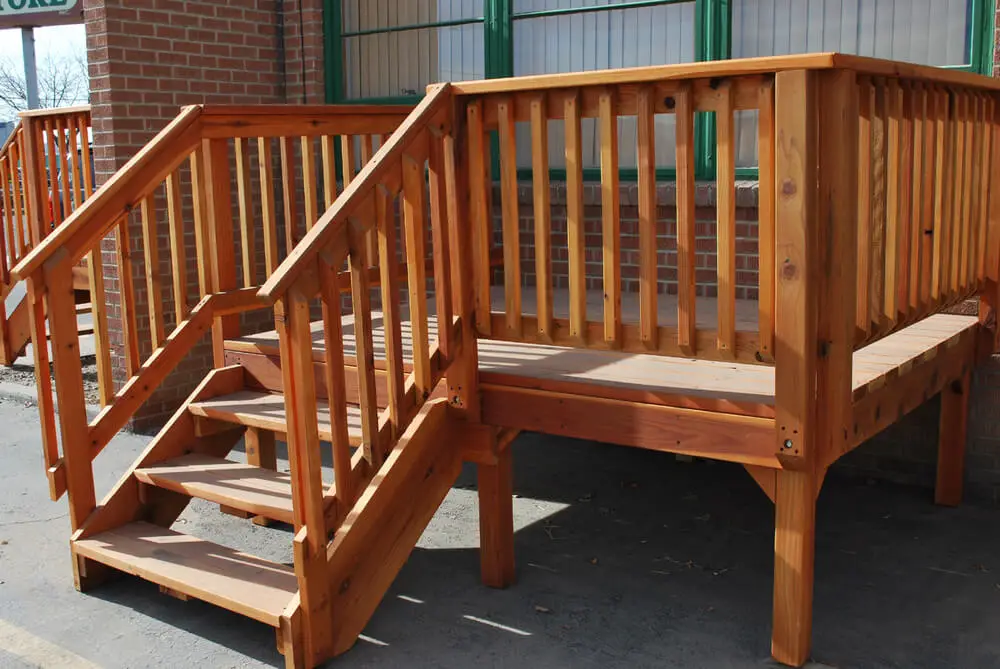
Redwood is less likely to warp, shrink, or check, thanks to its great dimensional stability. Its stability also makes it very durable. A well-maintained redwood staircase will serve you for over 30 years.
This wood is popular for its natural beauty. It’s one of those woods that remain attractive even without a finish. When left unfinished, redwood gradually weathers into a beautiful silver color.
The limited availability of this wood has made it expensive. It’s costlier than other softwoods such as cedar and pine.
5. Pressure-Treated Pine
| Characteristics | Comment |
| Weather resistance | High |
| Rot resistance | High |
| Workability | Good |
| Maintenance requirements | Minimal |
| Finishing | Finishes well |
Pressure-treated pine withstands outdoor weather better than untreated pine. The chemicals used to treat the wood repel insects and prevent the growth of microorganisms that would cause the wood to decay.
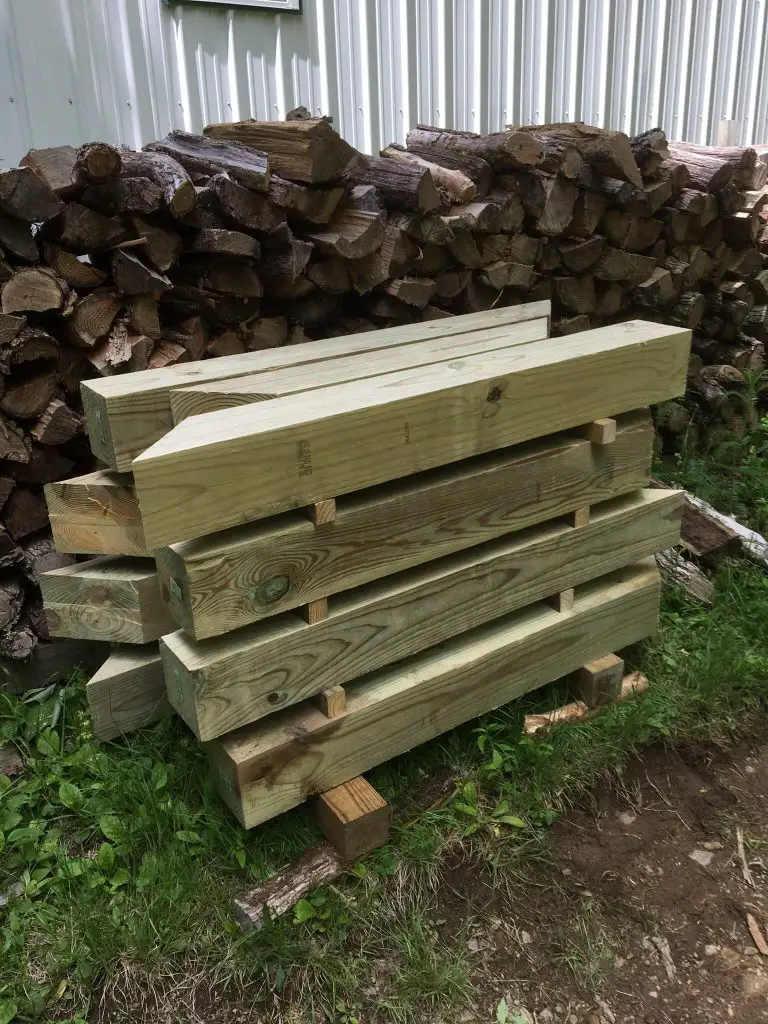
Pressure-treated pine has good workability. You can easily cut the wood using a saw or boreholes using a drill. You can also use a router to shape the wood without much problem.
Pressure-treated wood has moderate maintenance requirements. Although the wood can withstand outdoor weather, it is not completely waterproof. It requires finishing to protect it from water damage.
This wood stains well, but you must dry it completely before staining it. The stain tends to fade from too much foot traffic; you’ll need to re-stain your staircase every year. Unfortunately, pressure-treated wood doesn’t work well with paint. The paint tends to crack or flake when the wood shrinks.
Durable wood such as Ipe and redwood are very expensive. Pressure-treated pine is moderately durable and very affordable. This wood is your best bet if you’re working on a tight budget.

